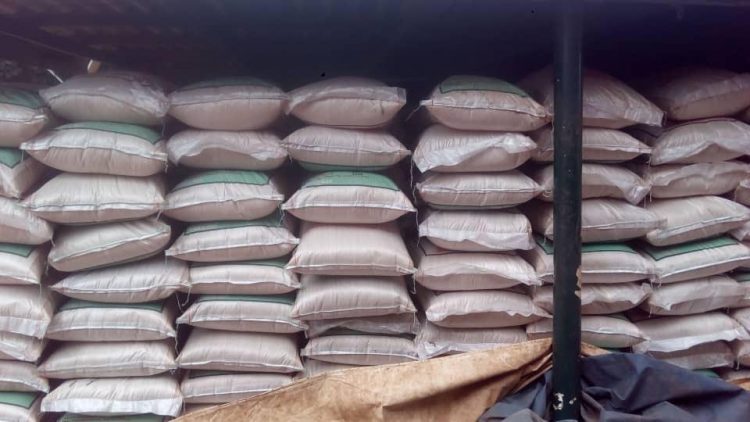Rice Smuggling has reached frightening levels, with hundreds of trailers ferrying tonnes of the staple food from neighbouring countries.
The nation’s supply gap was estimated at around 3 million tonnes by United States Department of Agriculture (USDA) and half that number by the Federal Government earlier this year.
However, legal importers paying full tariff of 70 per cent have not been able to compete with smugglers who enjoy a free ride into the market, aided by negligible tariffs in neighbouring countries of Cameroon and Republic of Benin, taking advantage of porous borders.
Another pertinent problem hamstringing rice investors is the Central Bank of Nigeria (CBN) ban of foreign exchange for rice imports, among other products, choking the importation supply chain.
The resultant shortage in the market is now being exploited by smugglers, who prospered significantly in 2013 when they were able to move in around 2.5 million tonnes through the borders, without paying a single kobo as import duty.
That year, the Federal Government increased import tariff to 110 per cent as against zero duty regime administered in Benin and Cameroon.
As Nigeria Customs Service (NCS) struggles to check the smugglers, the market is flooded with cheap quality rice. Besides, commercial agriculture by key investors in the rice value chain is frustrated.
Multinationals, including Olam, Stallion Group and Dangote, have announced large scale investments in the value chain that are crucial in Nigeria’s quest to meeting a growing annual demand of 6.5 million tonnes. Stallion Group is expanding its capacities to produce 1.5 million tonnes in Nigeria. Dangote plans to farm 100,000 hectares. Effective curbing of rice smuggling is essential to get these projects to fruition and encourage millions of farmers to get back intensively to rice farming.
The National Rice Millers Association of Nigeria (NRMAN) said this week that the NCS erred in its decision to lift the ban on importation of rice through the land borders. Its Chairman, Mohammed Abubakar, said the NCS overreached its statutory mandate as an enforcement agency in taking such a policy decision. Besides, Mr. Abubakar said, if the NCS succeeded in its decision, it would destroy Nigeria’s rice value chain attained by the previous administration.
Reports emerge that the huge rice influx has been noticed in the market from last Saturday, the worst affected being Lagos and Southwest. Rice arrives in big trailers with between 1200 and 1500 50KG bags from Cotonou. There is substantial under-declaration and non-payment aspects in these shipments, making it non-viable for legal importers and local producers to compete with these shipments.
Several long trailers are noticed during the night directly plying from Cotonou bearing Benin number plates (RB) into Daleko and G Cappa markets. Apart from these big trailers, smaller J5 Buses which carry 200 bags each are also used by these unscrupulous smugglers to ship products during the day time.
The affected states are Lagos, Ogun, Osun, Oyo, Kwarra, Ondo and Ekiti. Other states adversely impacted are Sokoto, Katsina, Kaduna, Kano, Abuja, Niger and Plateau – all coming in from Cotonou, Niger.
Rice from Cameroon through Northern Nigeria is flooding Adamawa, Borno, Yobe, Taraba, Benue and Enugu. Affected states from the Southeast and Southsouth are Cross River, Akwa Ibom, Abia and Enugu.
Related Posts:
Copyright Ships & Ports Ltd. Permission to use quotations from this article is granted subject to appropriate credit given to www.shipsandports.com.ng as the source.
